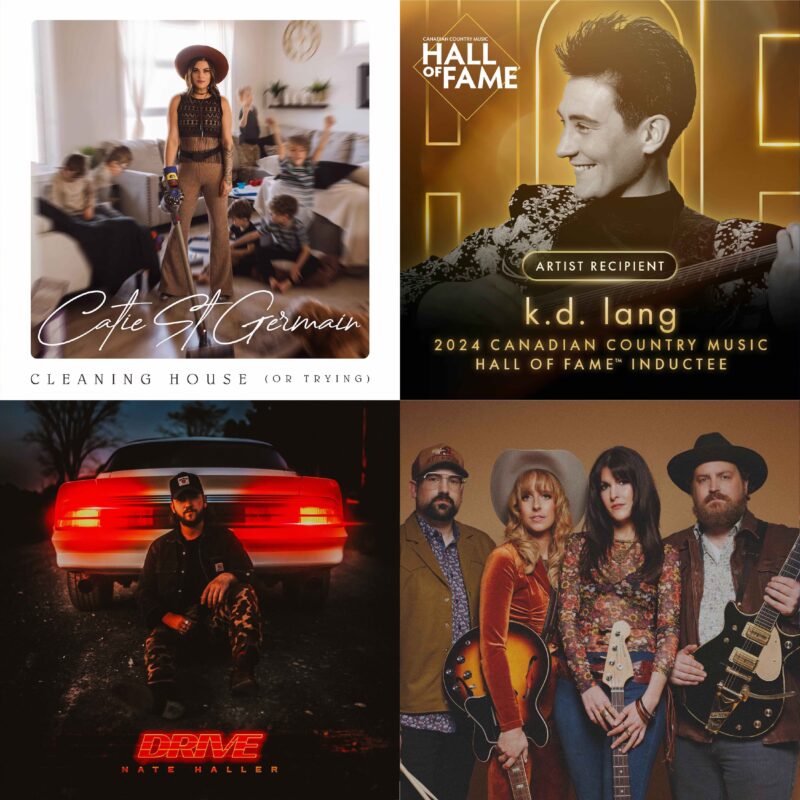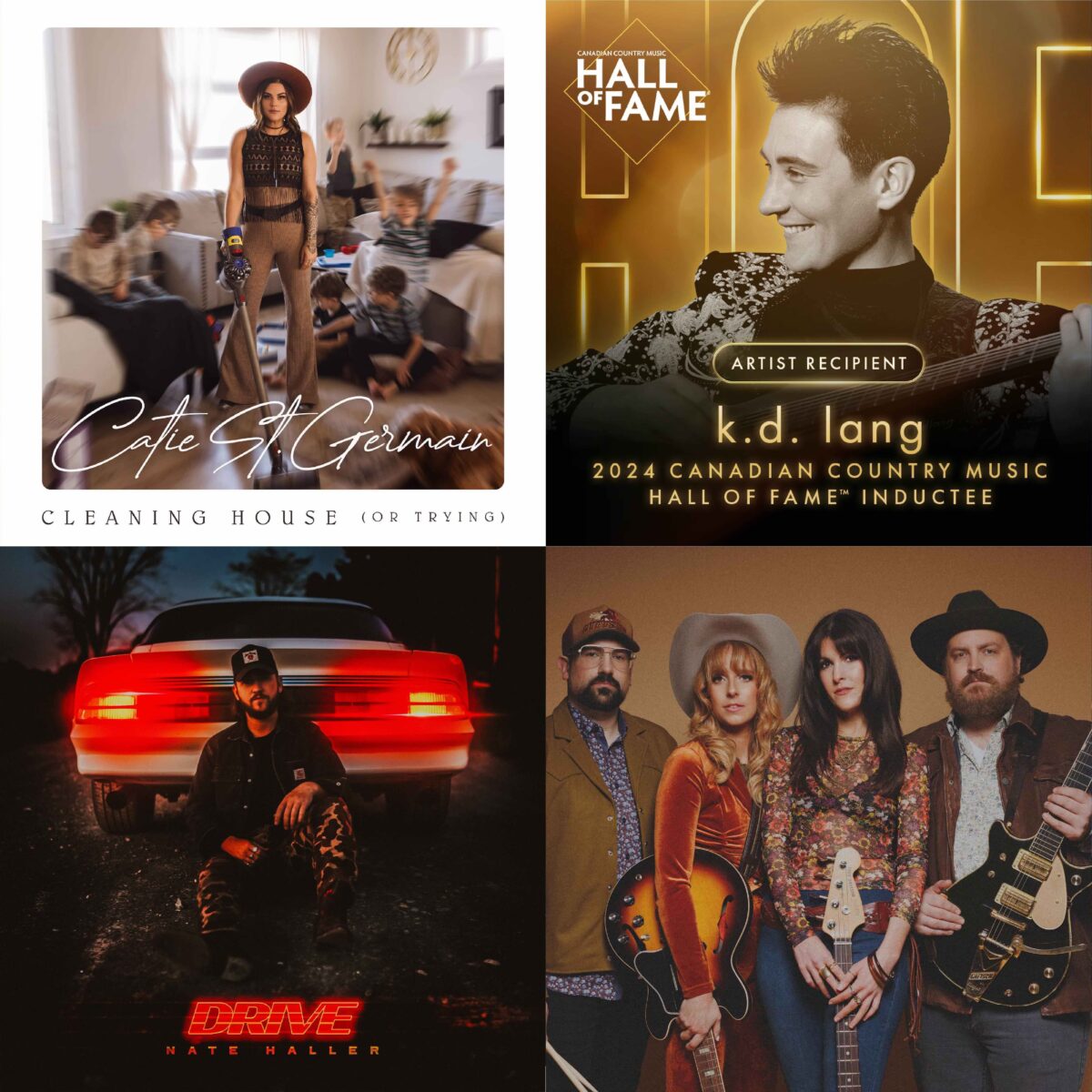Steve Kane with Neil Young
“It’s absolutely clear to me that they’ve ran out of people to induct.” That was the bemused reaction of Warner Music Canada’s President, Steve Kane on learning he had been inducted into this year’s Canadian Music Industry’s Hall of Fame – an induction that take’s place at Toronto’s Sheraton Centre, Thursday May 7th during Canadian Music Week conference activities.
“I would like to think the induction acknowledges a contribution I have tried to make in creating a difference for Canadian artists and for Canadian music, hopefully, someone who walked it like he talked it,” acknowledged the congenial Kane. “It has been important to me to continue to champion the music that comes out of this country and may be some of the music that’s a little off the beaten path. I have been very vocal and very active in things like copyright reform; I am actively working with government bodies to take a look at the role music plays, not just in this country’s cultural life but also in the economic life here – the music industry makes a huge financial contribution to this country’s economy.”
“Having been on the label side of things for over a quarter of a century, I still have a passion for music,” Kane continued. “I have a passion for discovering new music, hearing new music and nurturing new artists. Nothing gives me a greater thrill than seeing new artists like Scott Helman or Courage My Love emerge on our label.”

A native of Edinburgh Scotland who arrived in Canada at the age of seven, residing in the Oshawa area, Kane began to get creatively involved in music while attending Trent University in Peterborough Ontario where he worked on the campus radio station, published a music fanzine (The Black Triangle) and designed posters, Kane then advanced to working at a Records On Wheels outlet (Yonge & Isabella in Toronto) where he developed a knack for observing what affected people’s purchases. “Was it what was being played in the stores, what they heard on the radio, what reviews they had read in the newspapers,” questioned Kane. “This whole process got me interested in how records were sold.”
Although admitting that he can’t sing and can’t play a musical instrument, Kane believed in the Punk Rock ethos of don’t just be an observer, be a participant. “I used to love hanging around record stores, just the buzz and excitement about being in a record store. They were special places, they were a social hub.”
Kane’s ability to identify his customers came in handy when he landed his first record company job, working for Paul Orescan at the Toronto branch of I.R.S Records. I.R.S, co-founded in 1979 by Miles Copeland, brother of The Police drummer Steward Copeland, boasted an eclectic roster which featured the likes of R.E.M, Fine Young Cannibals, Concrete Blonde, Wall Of Voodoo, The Go-Go’s and even Canadian content with Candi & The Backbeat.
“It was my direct experience at ROW that got me the job at I.R.S,” observed Kane. “Marketing music is very tribal and I knew where those tribes lived because I was one of them.”
As I.R.S and Virgin Records rolled into one boutique label following their acquisition by Capitol Records, Kane found himself benefiting from the tutelage supplied by the likes of Virgin label president Laura Bartlett, Doug Chappell and Doug Caldwell. “I went from working for an indie label with three people to working at a boutique label with eight people, but this boutique label also happened to have the Rolling Stones, Janet Jackson and Lenny Kravitz on its roster,” noted Kane. “Virgin provided a great opportunity for me. The label was actively involved in signing Canadian talent; we signed Rita MacNeil, Leahy, The Northern Pikes, Colin James and Lori Yates. They had a much bigger domestic roster than I.R.S which allowed me to be more creative on the ground floor.”

Kane’s music industry education continued when he moved on to work for A&M and found himself benefiting from the experience supplied by the likes of A&M president Joe Summers but also label executives Bill Ott and Randy Wells as well.
“A&M was like a major label that felt like an Indie,” described Kane. “At this point, I started to get more interest in the business side of the music business. It wasn’t about marketing product anymore, now I was in the copyright business, the production business, the elements which kept this industry flowing.”
It was experience, Kane utilized when he moved back to Virgin to operate as general manager of the label under the direction of Capitol Records’ President Deane Cameron. “Aside from being my boss, Deane was someone I watched like a hawk,” Kane allowed. “This guy knew it all, just the way he carried himself, the way he inter-acted with his artists and the sheer passion he brought to Canadian music. He was a very important mentor of mine. He let me sign artists and he gave me an important insight into how to broker deals.”
In 2002, Warner Music Canada President, Garry Newman targeted Kane as his general manager and Kane hasn’t looked back, assuming the presidency in 2005 when Newman stepped down from the post.
His ascension to the top position came just as the music industry was undergoing a drastic shakeup with the advent of social media and the rapid decline of physical product sales and the loss of retail outlets. Along with these changes came a realization from many artists that it made no sense signing for a major label which couldn’t market product anymore, did not believe in A&R and had little impact in promoting new titles to radio – all claims Kane fervently debunks.
“Yes we are facing a shift from a manufacturing-based economy to a technically based economy, that’s a fact, but the idea that major labels only contribute to distribution, I find that notion ridiculous,” Kane vented. “With Warner Music Canada, we take great pride in developing talents like Scott Helman. He was 16 when we first signed him but he didn’t release a record until he was 19, so what happened to him during those three years? We helped him work with writers to give him time to develop his own song writing prowess, we gave him time to learn how to use the studio to get his skill set up so when he made his first record he was able to hold his own in that environment.”
Kane notes the same can be said for Courage My Love (a trio from Kitchener Ontario led by twin sisters Mercedes and Phoenix Arn-Horn). “For the past three or four years, we’ve watched them grow from 17 year old kids who had an idea what they wanted to do next. They are fiercely independent and they are so savvy about social media, they have built a real fan base for themselves and because of this, they are not a band we are rushing to radio, there is a due process involved.”
“Acts like these, we can take down to the United States and develop a financial plan for them so they are not dependant on worrying where their next grant is coming from,” continued Kane. “And what’s great is that when you sign one of these young artists, they inevitably know four or five more note-worthy artists through their network, worth at least checking out.”

Kane acknowledged there is a lot of disgruntlement from veteran bands, unhappy with declining sales, a lack of radio exposure, artists who have been slow adjusting to the modern reality of being self-sufficient but he points out Blue Rodeo as a band that has been with the label 30 years and have adapted to the industry’s changing scenario. “In 2009, Blue Rodeo released a two-disc CD titled “The Things We Left Behind” This was at a time when radio formats were changing, when stations that had been Blue Rodeo’s core, weren’t playing them anymore. People were telling them just to release singles and EP’s but they still see records as an art form and that’s how they want to record. So it’s our job to sell the idea that there is still a value in an album. You see this all time time with people like Tom Petty and Bruce Springsteen. They’ve accepted that the glory days of multi-platinum sales are long gone but there’s still an audience out there that wants to hear the full story which is what an album delivers.”
Kane said he is not surprised by the digital revolution, he claims he saw it coming long before he joined Warner Music but like most of the industry was surprised by how quick record streaming took hold of the industry. “When CD’s first came out and I was working at ROW, a guy I was working with said, `You know, at some point, they will be able to fit the entire Encyclopedia Britannica on one disc,” noted Kane. “Who knew that shortly after, we didn’t even need the disc!”
“I remember the blossoming of Napster and thinking that this was a neat service but it was a system that had to be harnessed, everybody realized we had to come to grips with it,” Kane continued. “In hindsight, it’s easy to say we were slow on the uptake, there were a lot of miscues but I believe we learned from them.”
Whether it’s vinyl or CD’s or pressing buttons on an IPhone, marketing product is still the end result of record retailing. “My job is to make artists stand out above the crowd,” Kane allowed. “In the past we had a record retailing principle called the Ten Foot Record. Our objective was to position any key new release 10 feet from the front of the store entrance so when people came walking through that front door, your label’s release is the first record they would see. So now what do we do? We try to get people to push the right button, so whether it’s iTunes or some other download service, our goal is for you to push panel A to get the good stuff. Our job hasn’t changed, the tools have changed, the delivery method has changed, but we are still trying for that 10-foot record.”
[youtube width=”600″ height=”400″ video_id=”y93PNLePlno”]













